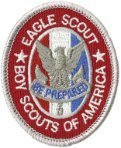Cub Scouts
For Cub Scout specific topics only.
3779 topics in this forum
-
- 17 replies
- 1.8k views
-
- 5 replies
- 778 views
-
- 2 replies
- 554 views
-
- 3 replies
- 631 views
-
- 5 replies
- 638 views
-
- 2 replies
- 637 views
-
- 24 replies
- 2.7k views
-
- 18 replies
- 2.6k views
-
- 7 replies
- 759 views
-
- 10 replies
- 1.1k views
-
- 7 replies
- 715 views
-
- 11 replies
- 1.1k views
-
- 4 replies
- 735 views
-
- 8 replies
- 888 views
-
- 14 replies
- 964 views








